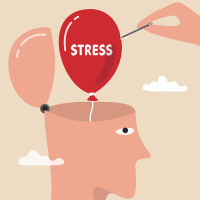Understanding the Importance of Sleep Positions
The way we sleep is often something we disregard as insignificant, but in reality, our sleep positions can tell us a lot about our personal health and wellbeing. Similar to how our habits and lifestyle choices impact us, our nighttime habits also influence our health. The position in which we sleep can affect various aspects of our body’s functionality, including circulation, digestion, and even our ability to breathe properly throughout the night.
Certain sleep positions are linked with specific health conditions. For instance, sleeping on your back can worsen snoring and problems with sleep apnea, while sleeping on your stomach can stress the neck. The benefits of various sleep positions, often overlooked, include reduced back and neck pain, less acid reflux, and relief from symptoms of sleep apnea. Successfully understanding these links provides the first step towards improving our health through better sleep patterns.
The Connection between Sleep Positions and Overall Health
Ever wondered why you tend to favor sleeping in certain positions? Does your back, side, or tummy feel the most comfortable to doze off into dreamland? Intriguingly, your preferred snoozing posture doesn’t just rely on comfort levels, but also holds distinct implications for your overall health. Such positions, whether curled up like a fetus, splayed out like a starfish, or lying down like a log, can potentially influence diverse aspects of health, ranging from snoring and sleep apnea to back pain and heartburn.
Elucidating these connections, a mounting body of research suggests that your sleep position can significantly influence your respiratory, digestive, neurological, and muscular health. For instance, sleeping on your back can exaggerate snoring and cause intermittent breathing gaps (sleep apnea), thereby disrupting sleep quality. Conversely, side-sleeping or sleeping on your left side in particular, can alleviate heartburn, acid reflux, and can even improve brain health by facilitating the smooth draining of waste from the brain. Thus, understanding the intricate links between sleep positions and health becomes pivotal in promoting healthier sleep habits and, consequently, better health outcomes.
Analyzing the Fetal Sleep Position and Its Health Implications
The fetal sleep position, a popular one for many, involves lying on the side with arms and legs curled towards the chest, much like a baby in the womb. This position, named for its resemblance to the fetal pose, is a favored one for many individuals who find it comfortingly familiar and soothing. Interestingly, within the realm of sleep science, the fetal sleep position has been discovered to have unique health implications that merit our thoughtful consideration.
Studies have shown that the fetal sleep position can be linked to lower occurrences of snoring and sleep apnea, making it a good option for those who struggle with these issues. Furthermore, curling one’s body in this way is believed to help prevent chronic conditions like Alzheimer’s and Parkinson’s, as it promotes the brain’s waste-clearing system. With that said, though it may be less than ideal for sufferers of arthritis or joint pain, due to the stress it can place on hips, waist and neck. Therefore, it’s essential to understand how personal health conditions can interact with preferred sleep positions.
The Log Sleep Position: What Does It Mean for Your Health?
The Log sleep position, where an individual sleeps on their side with their arms at their sides, is extremely popular. The followers of this position reveal that it fosters an ambiance of serenity with the body in a relaxed posture. Interestingly, it provides relief to people suffering from obstructive sleep apnea, a debilitating medical condition leading to disturbed sleep. Breathability improvement results due to gravity’s impact, reducing snoring and assuring uninterrupted sleep.
In addition, the Log sleep position significantly aids digestion due to proper alimentary canal alignment which facilitates the smooth passage of food. Nevertheless, certain health implications may arise such as numbness in arms due to pressure exerted throughout the night and neck or back pain stemming from poor pillow positioning. Therefore, it is necessary to ensure proper body alignment while adapting to the Log sleep position.
The Yearner Sleep Position and Its Health Effects
The Yearner sleep position is often depicted as a person sleeping on their side with both arms outstretched in front. It’s named so because it resembles yearning or reaching out for something. Contrary to the seemingly ‘reaching-out’ posture that may indicate a restless night, this position is often associated with set sleep patterns and can be quite beneficial for health.
Research indicates the Yearner position might assist in reducing the possibilities of developing afflictions associated with sleep, such as sleep apnea, acid reflux, and encourages a healthier heart owing to the enhanced circulation. Interestingly, a study suggests that individuals who adopt this position are likely to be more open-minded yet cynical. Despite its potential benefits, Yearner sleepers may sometimes experience arm numbness because of the pressure placed on the shoulders and arms for extended periods.
Soldier Sleep Position: Decoding Its Relation with Health
Nicknamed for its resemblance to a soldier standing at attention, the soldier sleep position is characterized by lying on your back with both arms pinned to your sides. While it’s less popular, being the preference for just 8% of people according to a survey by the Better Sleep Council, this no-frills sleep style is associated with several health benefits. This sleep style keeps the body and the spine in alignment, thereby reducing the potential for developing daytime aches and pains.
The soldier sleep position also helps in preventing acid reflux, as the head is elevated and the stomach can sit below, making it harder for digestive acids to rise. However, it’s noteworthy that lying on the back can also exacerbate snoring and problems with sleep apnea — a disorder characterized by paused or shallow breathing during sleep. Serious cases of sleep apnea can lead to chronic sleep deprivation and other serious health complications. Therefore, while the soldier sleep position can promote spine health and assist in managing acid reflux, it is crucial to be mindful of breathing difficulties potentially induced by this sleep style.
Freefall Sleep Position and Its Health Significance
The Freefall sleep position is a common sleeping posture where individuals tend to lie flat on their stomach, with their hands above the pillow. This sleeping style got its name from its uncanny resemblance to a freefall. Interestingly, despite the somewhat unusual stance, many people find immense comfort in this position. However, while it may be enjoyable, there are noticeable health implications associated with regular practice of this position.
The benefits of the Freefall sleep position include aiding digestion, reducing sleep apnea and snoring, given the downward gravity on the tongue and soft palate which can help keep the airway open more significantly. On the contrary, this position can lead to chronic back and neck pain, and premature wrinkles due to the pressure placed on the face throughout the night. Adopting this position regularly may place undue stress on internal organs. Therefore, being aware of these potential health effects is crucial for promoting ideal sleeping habits and practices.
The Starfish Sleep Position: Evaluating Its Health Impact
The starfish is a sleep position in which an individual lies on their back with arms and legs spread wide, mimicking the shape of a starfish. Despite its unconventional nature, the starfish sleep position has an impactful relationship with an individual’s overall health. It is known for being beneficial to the spine because it allows for natural alignment without force or effort. This position, combined with a good mattress, can alleviate or reduce back pain.
In terms of respiratory health, the starfish position can encourage better airflow but also has potential risks for individuals who snore or have sleep apnea. This is because lying on your back may cause the tongue to block the windpipe resulting in snoring or breathing difficulties. Despite these potential drawbacks, it’s worth noting that sleep positions, such as the starfish, can be a simple but effective tool for managing and improving various aspects of health.
Health Risks and Benefits of Different Sleep Positions
Sleep positions hold a significant sway over our health in ways that may seem unexpected. For one, the position in which one settles to rest can play a crucial role in determining the quality of sleep that they receive. Beyond this, it can also contribute to the presence or absence of snoring, the intensity of heartburn, and the rate at which body aches and pain surfaces.
On the one hand, sleeping on the back with a pillow to support the natural curve of the spine, also known as the soldier position, is touted as the best for addressing issues like neck and back pain. On the other hand, laying on the stomach, often considered the freefall position, can exacerbate the frequency of sleep disturbances and muscle cramping. Therefore, understanding the health risks and benefits associated with various sleep positions can serve as a valuable tool in elevating the quality of one’s slumber and, by extension, their long-term health.
Improving Health by Modifying Sleep Positions
Modifying sleep positions can have a profound impact on overall health. This applies both to conditions that are directly linked to sleep, such as sleep apnea and insomnia, as well as other aspects of physical and mental wellbeing. For instance, certain sleep positions can exacerbate chronic back pain, whereas others might contribute to snoring, which in turn can lead to interrupted sleep cycles and consequent daytime fatigue. Hence, understanding one’s optimal sleep position can significantly bolster overall health.
Most people fall into certain habitual sleep positions, but these can be effectively altered with practice and the correct tools. One such practice is the utilization of specific pillows which support the alteration of sleep positions. People suffering from sleep apnea may find relief by adopting a side-sleeping position, supported by body pillows. On the other hand, those who chronically experience heartburn or acid reflux could benefit from an elevated sleeping position, using wedge pillows. Thus, strategically modifying sleep positions can play a critical role in enhancing overall wellbeing.























